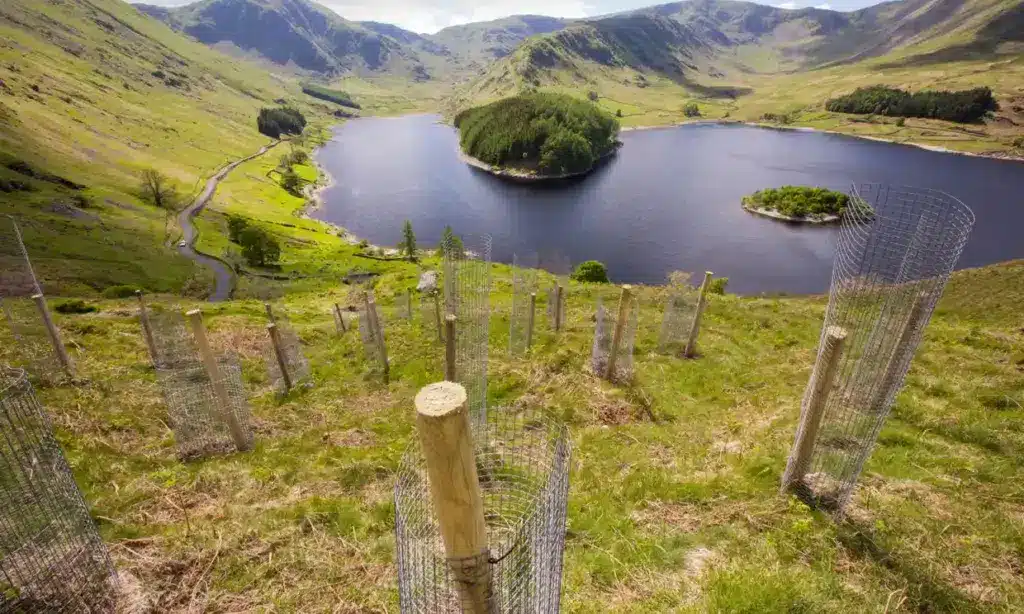On the eve of the election, Sir Keir Starmer, the overwhelming favourite to take Number 10
Publishing his manifesto last month, Sir Starmer, the “slim document” is both “pro-business and pro-worker,” which includes a vow to “overhaul planning rules with a new 10-year infrastructure strategy for rail, road and homes, and will reiterate plans to “shift power away from Westminster” by giving new responsibilities to regional mayors.”
Tackling Timber: Conservatives take on the forest economy.
The policy drop comes after the four-term incumbent Conservative government released its 80-page manifesto last month. The manifesto includes a commitment to expand woodland to achieve its 30 x 30 COP16 pledge and introduce forest risk commodities—”tackling our impact on illegal deforestation internationally.”
In May, 30 Conservative Parliamentarians backed several proposals centred around boosting tree-planting rates and expanding woodland across the UK. Known as “Branching Out,” it crosses successive Conservative and Labour governments for under-investing in building a timber economy:
“The manifesto argues that a lack of tree-planting has left the UK as the third biggest importer of timber in the world, at a time when demand for timber and sustainable biomass is set to increase due to the development of more sustainable buildings and the expansion of biomass energy plants,” the policy statement said. “Moreover, the UK remains one of the most nature-depleted countries in the world, in part because of its relatively low levels of tree cover.”

It comes as Rishi Sunak, the UK’s Prime Minister, revealed the “Timber in construction roadmap,” the latest, and to date, most ambitious policy delivered by the government to reduce barriers to timber construction.
The roadmap promotes English forestry as a “green investment opportunity,” markets homegrown C16 softwood timbers “as a fit-for-purpose” solution, and develops higher-strength timbers from its forests.
It will also increase collaboration with insurers, lenders, and warranty providers – which could see the government introduce a risk register by 2028 – and invest in volumetric timber and off-site construction systems to develop faster and more circular construction methods.
Wood Central has obtained a copy of the report, which supports the UK’s “Net Zero Strategy, the England Trees Action Plan and the 2023 Environmental Improvement Plan to increase the safe use of timber in construction (TiC) in England.”
It will “help reduce embodied carbon in the built environment and drive investment into tree planting, forest management and domestic supply chains, creating new green jobs and industries.”
Why the UK matters to global markets
The UK is the world’s third-largest import market and, in recent months, has been under scrutiny to embrace the EU’s new EU Deforestation Regulations, with more than 80% of forest products used in the UK economy imported from overseas.
It is also home to a growing number of mass timber projects, including the £8b Brent Cross Town development rising fast in London, the Lord’s Cricket Ground Masterplan, the ABBA Arena—the world’s largest temporary stadium—Ev0, the UK’s greenest building in Southern Manchester, and “The Phoenix,” a large-scale development in East Sussex.
According to the most recent BBC poll, Labour remains the overwhelming favourite to secure government for the first time since 2007 over Conservatives. With 44% of the primary vote, they lead the Conservatives (22%), the Reform (13%), the Liberal Democrats (10%), the Green Party (6%) and the Scottish National Party (3%).






